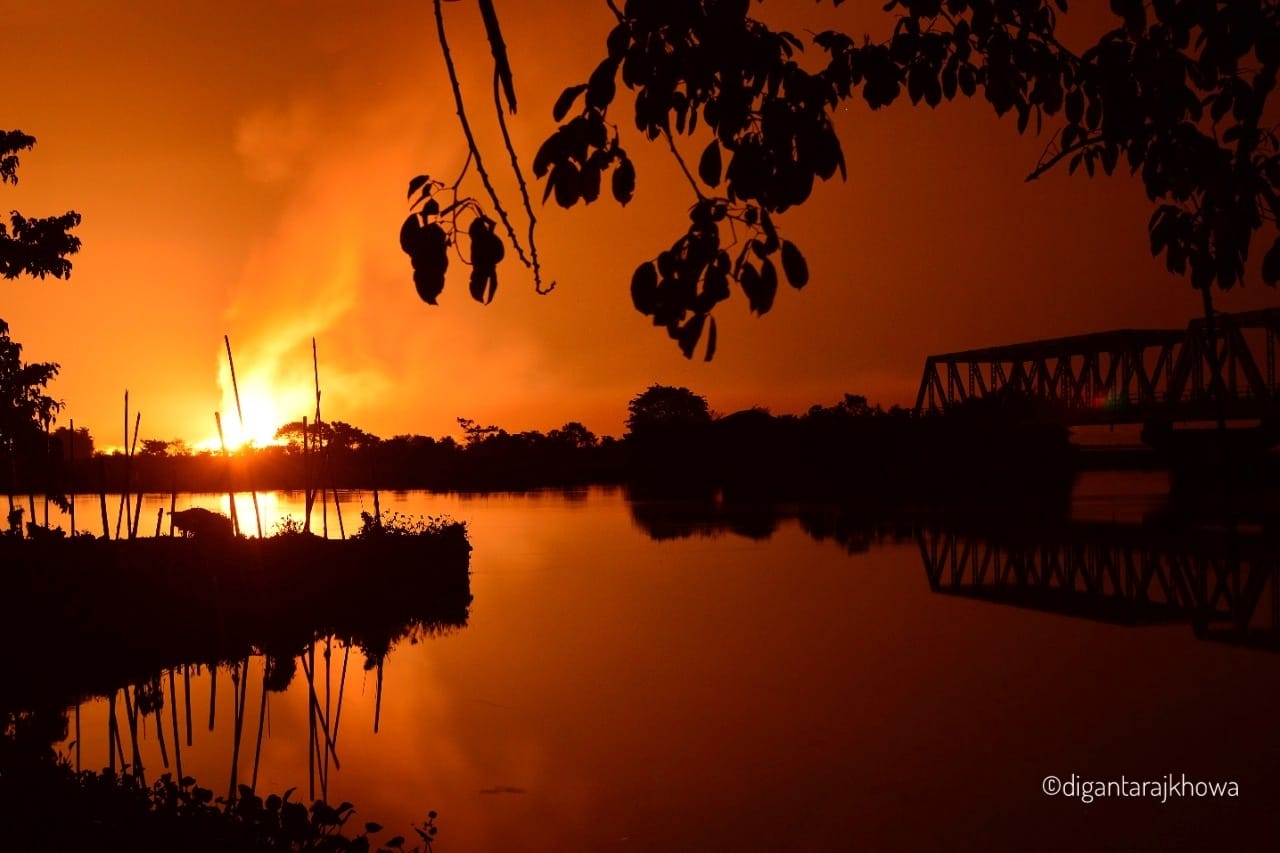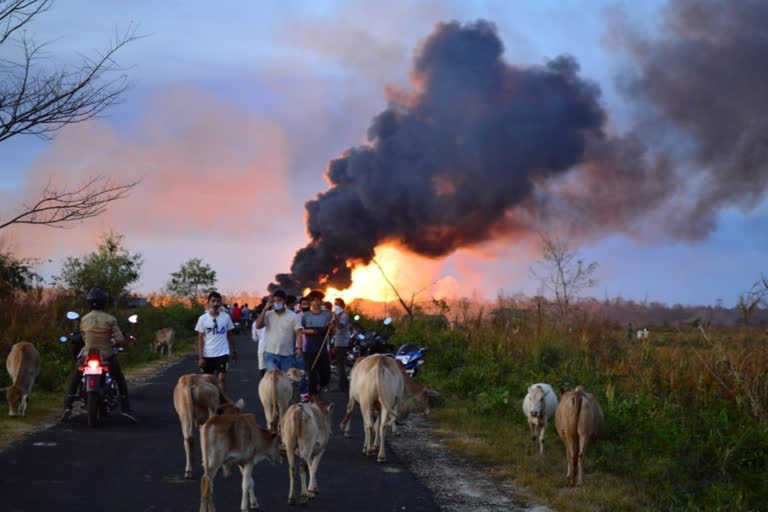New Delhi: Rock group ‘Deep Purple’ would have been very happy in Assam’s Baghjan at how their impossible lyrics of a popular rock anthem found literal expression when smoke rose from the water and huge fiery flames darted into the sky.
“Never did I even dream that Baghjan one day would look like this,” said Anil Urang, whose house lay about two km away from Oil India Limited’s (OIL) Baghjan rig that caught fire on Tuesday billowing huge flames into the sky even as condensates spewed out, spread the fire into the lush green surroundings including the water bodies from where smoke arose.

Banana trees, ‘tamul’ (betel nut), shrubs, fruit-bearing trees and the surrounding farmland lay black and scorched. Condensates, halfway between gas and oil, are extremely inflammable and catch fire at about 47 degrees temperature.
It all started on May 27 when workers of an Ahmedabad-based private firm ‘John Energy’ started a ‘work over’ operation at OIL’s Baghjan well number 5 when a ‘blow out‘ happened. Gases including propane, methane, and propylene gushed out in an up-rush.
‘Work over’ is the undertaking of major maintenance or remedial measures in oil or gas wells. ‘Blow out’ is the uncontrolled surge of oil or gas from a well.
“When the gas leaked, there was a continuous deafening sound like a fighter plane along with a plume of thick white smoke that shot into the sky in a long trail. It went on for days and people were not able to sleep in the night because of the sound,” says Urang.
Till now, two OIL firefighters have died, about six injured, nearly 8,000 people evacuated to 12 shelters being set up at a safer distance, while substantial damage to property, vegetation and environment has taken place.
Located just next to the ‘Maguri Motapung’ wetland and the Dibru-Saikhowa National Park, Baghjan has a sleepy feel with its residents totally unaware that beneath their feet, there were huge reserves of natural gas churning at about 4,500 psi (pound per square inch)—one of the most prolific ones in the region. For perspective, the four-wheeler vehicle has about 33 psi.
Not many years back, it was among the heartland areas for the ULFA militants who would move around freely carrying menacing weapons.
“The operating procedures are very well defined. Such incidents are very rare. And when they happen it is mostly due to human error most of the time. And human error happens when there are procedural lapses and standard safety protocols are not adhered to,” said an expert who had worked in the Baghjan gas field when he was with OIL.
“It will be a long process now. The rig will have to be removed. The area will have to be cleared. Operating equipment like cranes will have to be brought in after proper insulation. A water body has to be dug up in close vicinity. It may take a month, months or even longer,” said the expert who has worked for 32 years on ‘work over’ operations. He requested no to be named as he was working with a private firm now.
(Article by senior journalist Sanjib Kr Baruah)
Also Read: Assam gas well fire: Damage will be compensated, says Minister Chandra Mohan Patowary



